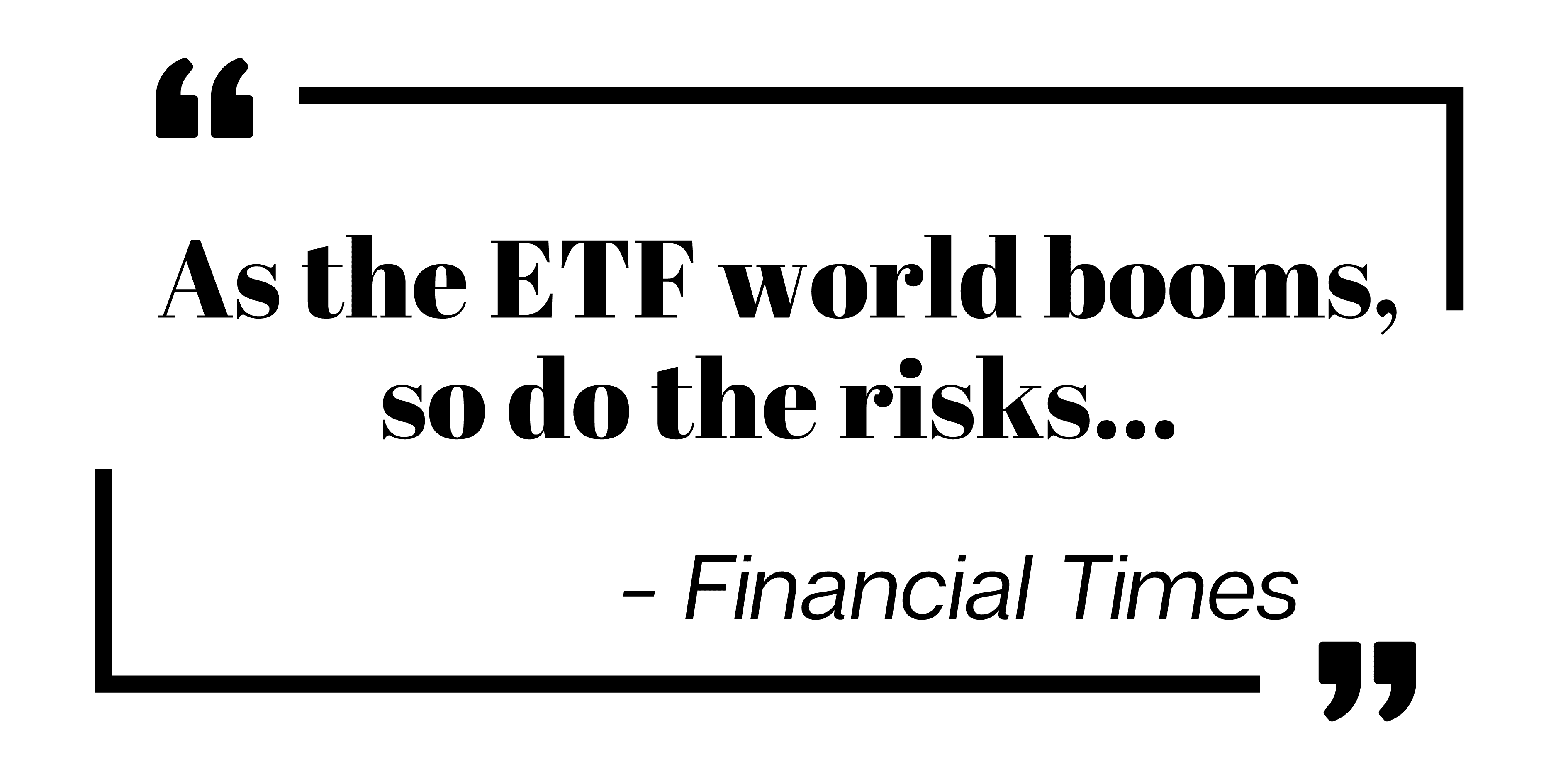Don't even think of investing in an ETF before reading this…

Investing in ETFs was supposed to be simple…
Passive, indexed, diversified… even safe.
But with record levels of money flowing in…
Where global ETF assets are now worth over USD 10 trillion…
Investing in ETFs today is anything but.
Add to this complexity, the sheer number now available.
In fact the number of indexes in the US now exceeds individual stocks…
You can now get "Leveraged" ETFs which use derivatives to juice returns of an underlying index.
You can now get "Inverse" ETFs which deliver the opposite.
You can now get "Thematic" ETFs catering to niche areas like AI robotics, cyber security, cryptocurrencies and even pet care.
And with this wall of money pouring in – an entire "ETF Industry" has emerged – pretty much the whole big end of town, who are doing everything they can to cash in. And testing the very limits of what can be packaged up into an ETF structure and sold to investors.
Which may go a ways to explain why legendary GFC investor Michael Burry of "The Big Short" fame was sounding the warning about an ETF bubble back in 2019… Where he likened passive index funds to subprime CDOs.
And while Burry was referring to the extreme end of the scale where financial services firms like to get in on any money making trend and milk it for all it's worth…
Even if you avoid the "exotic" ETFs and stick to "plain" market indexes… consider this…
One of the most popular ETFs on the ASX, the ASX200 ETF is largely made up of banks and mining companies…
That's hardly diversified.
So, if you thought "ETF" automatically means – Indexed. Diversified… and Safe. Think again.
As a long-term investor looking for a low fuss – low risk strategy to grow wealth…
ETFs can be a minefield. With potential pitfalls…
So, it begs the question…
How do you know which ETFs are the best? Ones that can potentially reduce volatility while still growing your wealth over the long haul?
ETFs that aren't loaded with some unforeseen risk?
Motley Fool Chief Investment Officer, Scott Philips says despite all the pitfalls confronting investors these days, "ETFs are wonderful"… and are "great to launch, or be the cornerstone of, an investment portfolio".
There are some ETFs that are investing in things he "personally wouldn't touch"… And it pays to choose carefully. Scott thinks there are some absolute stars available for long term investors who know where to look.
In fact, Scott Phillips has turned his 25 years of investing knowledge to hunt through the entire ETF landscape and has chosen his top picks when it comes to a truly diversified mix of Exchange Traded Funds.
Funds that he thinks represent real diversification and potentially could ward against extreme volatility and market drawdowns.
The best bit? You can easily access this research.
Simply enter your email address below to get the full story:
The Motley Fool has a disclosure policy. This article contains general investment advice only (under AFSL 400691). Authorised by Scott Phillips. For more information about The Motley Fool see our Financial Services Guide. All returns cited are hypothetical and based on the percentage change between the stock price at the time of recommendation and the current or sell price (if the position has been closed) at the time of publication. Brokerage, taxes and any other associated costs are not taken into account. Please remember that investments can go up and down. Past performance is not necessarily indicative of future returns. Performance figures are not intended to be a forecast and The Motley Fool does not guarantee the performance of, or returns on any investment. Any money back guarantee is strictly limited to the subscription price paid for the product.
